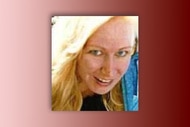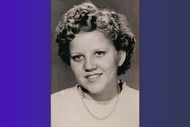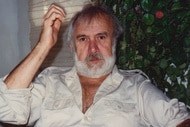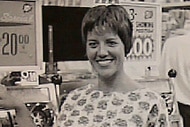Create a free profile to get unlimited access to exclusive videos, breaking news, sweepstakes, and more!
Authorities Identify "Nation River Lady," Make Arrest in Canada’s Most Famous Unsolved Murder
Tennessee businesswoman Jewell "Lalla" Langford has been identified as the murder victim found in an Ontario river in 1975.

Nearly 50 years after the murder of a prominent Tennessee businesswoman, a man who knew her has been charged in one of the Canada’s most notorious cold cases. Jewell “Lalla” Langford was 48 years old when her body was found floating in an eastern Ontario river, just a short distance from a highway bridge near the town of Casselman. When traveling to Montreal in 1975, she told friends and family she’d keep in touch, but they never saw her again.
Local police were unable to identify her remains and spent decades seeking clues. She became known as the “Nation River Lady,” after the name of the river where her body was discovered.
Through the years, law enforcement agencies set up dedicated tip lines, posted forensic artist renderings, and made multiple public appeals. In 2017, police created a three-dimensional facial approximation but still had no breaks in the case. It wasn’t until 2020, after authorities exhumed the body to obtain a new DNA sample, that the Nation River Lady finally had a name.
Jewell Parchman Langford was a successful businesswoman in Jackson, Tennessee, who co-owned a health spa with her ex-husband. “She truly was ahead of her time,” said retired detective constable Janice Mulcock in a briefing posted on Facebook by Ontario Provincial Police. Langford became the chair and president of the Jackson, Tennessee chapter of the American Businesswomen’s Association, and was voted “Woman of the Year” in 1971 by her colleagues. In a period just after the Civil Rights Act had passed and workplace equality was gaining momentum, Langford was viewed as a mentor and inspiration to many. “Jewell was a beloved daughter, sister, cousin, and friend,” Mulcock added.
Rodney Nichols, 81, of Hollywood, Florida, was arrested and charged with Langford’s murder in the Ontario Court of Justice late last year. According to police, Nichols and Langford knew each other but did not elaborate on their relationship. When her body was found in 1975 by a farmer, she had a noose around her neck that had been tightened with a TV cable wire. Her hands and legs were bound with a necktie.
Canadian authorities held back from publicly announcing the charge until this week to protect the investigation and allow for possible extradition of Nichols from the U.S. Multiple agencies including the FBI and the Canadian and U.S. Departments of Justice collaborated to bring the suspect to justice.
The case hinged on a lucky break: a DNA profile of Langford was matched to two other people listed in her DNA family tree. “This is believed to be the first case in Canada of this nature to identify human remains through Forensic Genealogy” a police news release stated.
“Thanks to advances in genetic genealogy science and the collective commitment of all the investigators involved, we have brought resolution to the families and friends of this missing person who met with foul play. We can be satisfied with the results of this investigation and that we were able to return Jewell Langford’s remains to her loved ones.”




























